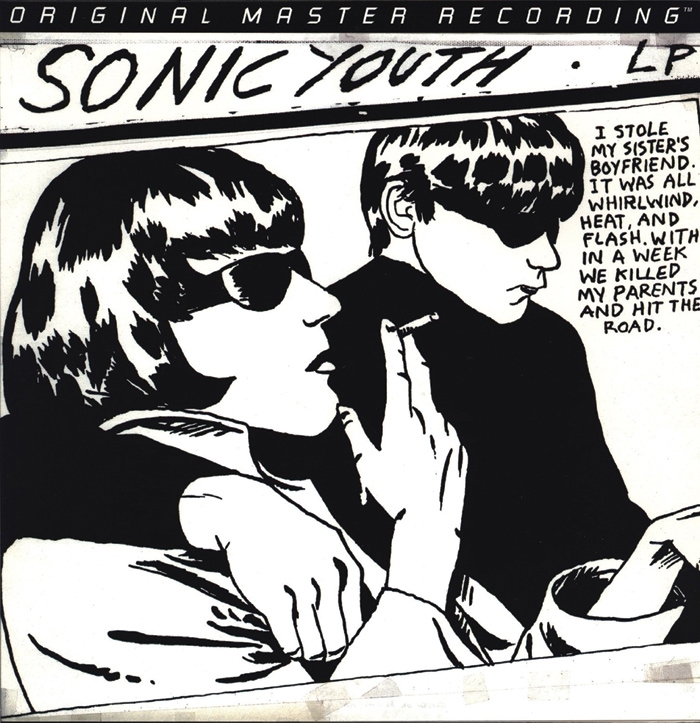How things change. When the compact disc was first introduced to American music fans in the 1980s, we were all told that sure, they cost more, but they were better than LPs and would offer us perfect sound forever!
Thirty years later, we all know that was hooey. CDs scratch, skip, rot, and break just like LPs, except you can’t put a quarter on top of the CD player to make it stop jumping, and they lack the warmth and presence (and cool looking sleeves) of vinyl.
However, now that vinyl has made its big comeback, it’s also become the high priced premium audio format. The happy irony is that plenty of folks are now paying top dollar for new pressings of classic albums available on CD at bargain prices.
Being this is Revue’s Cheap Issue, let’s celebrate the current state of the back catalog CD, starting with this list of a dozen inarguably great bargain-bin albums you can pick up at several chain bookstores and big box emporiums for just five or six dollars a pop. Your locally-owned indie record shop usually has a pile of these titles, as well.
If the bottom is going to fall out of the CD market, you may as well take advantage of it, and these 12 albums are great places to start.
Best of the Bargain Bin:
Dusty Springfield: Dusty in Memphis (Rhino, 1969). Dusty Springfield was the Adele of the 1960s, a not quite ordinary British gal who had both the voice and the instincts to sound like a real-deal soul diva. If all that survived from Springfield’s career was the version of “Son of a Preacher Man” that appears on this album, she’d still be a legend.
Marvin Gaye: What’s Going On (Motown, 1971). Berry Gordy may have created the most productive assembly line in music history, but Marvin Gaye was the first Motown star to successfully buck the system in favor of his own vision. What’s Going On was a powerful, personal, and deeply insightful album that confirmed Gaye was one of the most distinctive creative voices to emerge from soul music.
Public Enemy: It Takes A Nation of Millions to Hold Us Back (Sony, 1988). A hip-hop landmark, this exercise in articulate fury still sounds dense and explosive, like a string of firecrackers that never stops popping. Chuck D earned his stripes as one of hip-hop’s boldest and most articulate MCs here, and before he became a punch line, Flavor Flav’s streetwise treble was the ideal balance to Chuck’s bass.
Ramones: Ramones (Rhino/Sire, 1976). Punk rock as a musical genre starts here. The Ramones’ minimalist roar and goofy sick-joke lyrics established the first template for punk, and while lots of bands played faster and louder, no one was as funny and satisfying as the faux brothers from Queens. Continued on page 54 »
Sonic Youth: Goo (Geffen, 1990). Sonic Youth’s major label debut arrived as they had matured from an interesting but unfocused art band into a discordant but inspired rock band. Along with Sister and Daydream Nation, this represents their best and most compelling work.
The Sex Pistols: Never Mind The Bollocks, Here’s The Sex Pistols (Warner Bros., 1977). Punk rock as public scandal starts here. Almost 40 years after it was released, this album hasn’t lost its power to rouse, thanks to Johnny Rotten’s gloriously strident vocals, the roaring elemental guitar of Steve Jones, and Paul Cook’s bruising drumming.
Neil Young: Tonight’s The Night (Reprise, 1975). A woozy and ominous meditation on drugs and death, Tonight’s The Night was written and recorded in the wake of the death of two of Young’s close friends who dabbled with heroin. One of Young’s finest albums, this is the sound of a long, long look into the abyss with a noisy guitar for company.
New York Dolls: New York Dolls (Mercury, 1972). Too sloppy for the glam crowd, too early for punk, and too weird for the arena audience, the New York Dolls were ahead of their time in ways that only made trouble for them. All they had going for them was they were a brilliantly sloppy and heartfelt band. Their debut has barely dated a bit since its release, despite all that so many acts borrowed from it.
The Velvet Underground: The Velvet Underground & Nico (Universal, 1967). Pretty much anything that happened to the left of rock & roll’s center can be traced back to the VU’s debut in some way, and this music introduced two of rock’s most enduring iconoclasts, Lou Reed and John Cale.
Blue Cheer: Vincebus Eruptum (Mercury, 1968). Louder than a freight train and just as subtle, Blue Cheer are often cited as the first heavy metal band. While the metal part is arguable, they were heavy like nobody’s business, and their sloppy wallop, captured with artless brilliance on this, their debut album, was also a important precursor to grunge and stoner rock.
The Cars: The Cars (Elektra, 1978). The Cars’ self-titled debut was their greatest moment, and also the best fake new wave album ever. If these pop tunes sometimes strain to seem eccentric, that never keeps them from connecting, and many of these songs became radio staples for all the right reasons.
Prince: 1999 (Warner Bros., 1982). Prince’s first double album gave him room to stretch out on the ideas that had burst forth on Dirty Mind and Controversy. If Purple Rain was where Prince fully conquered the pop charts, on “Little Red Corvette” and the title tune he made it clear he had the smarts and the chops to be a lot more than just another cult figure.





